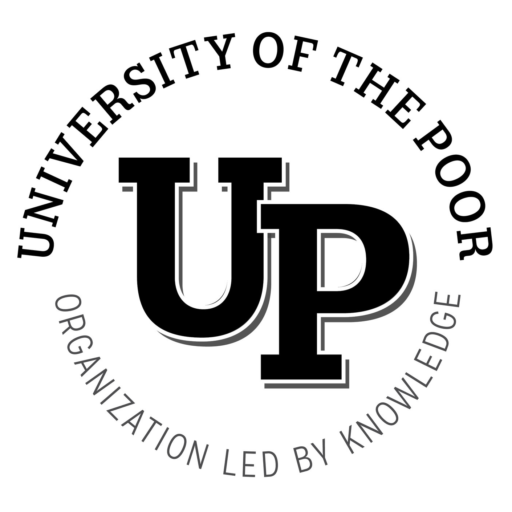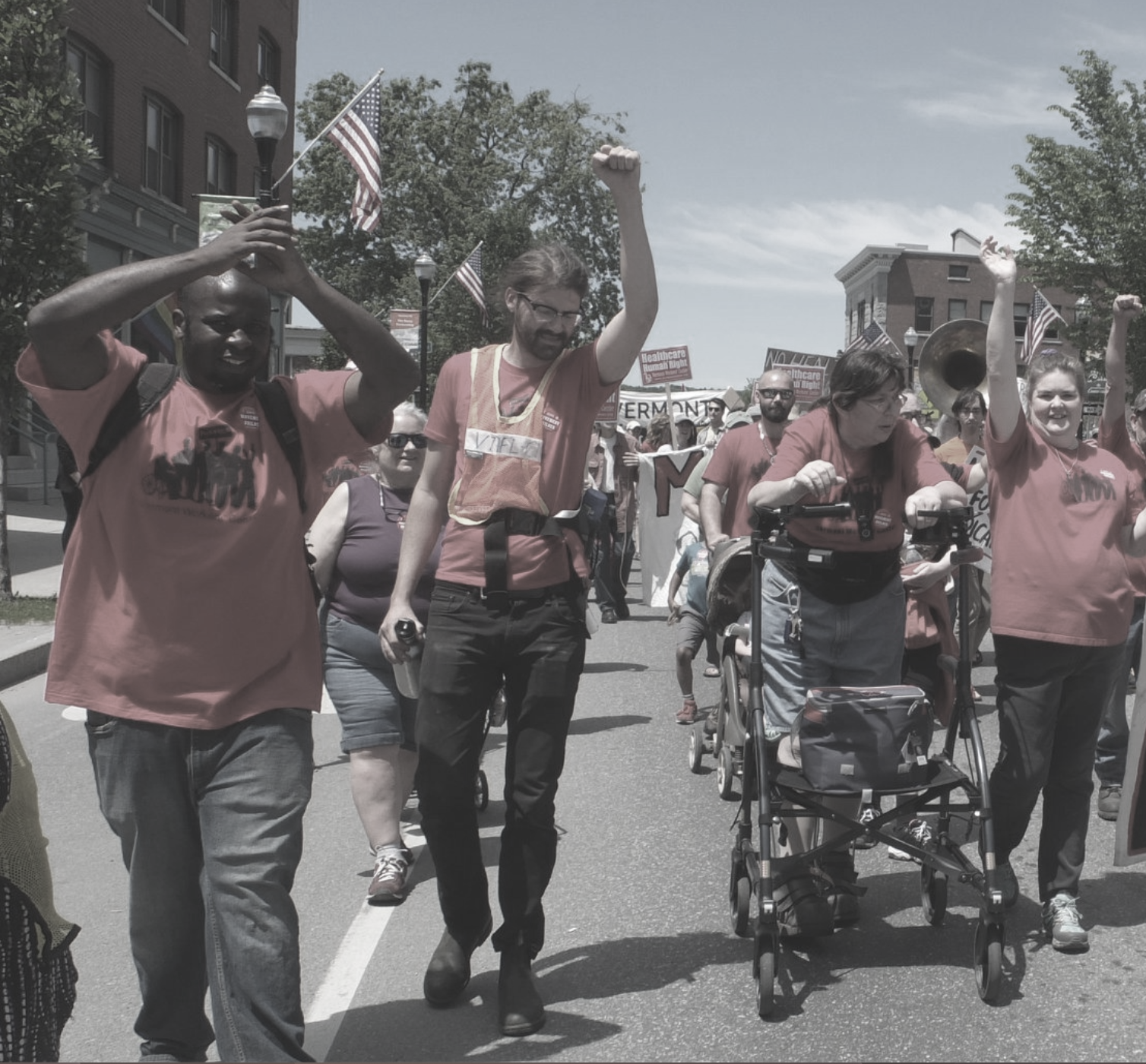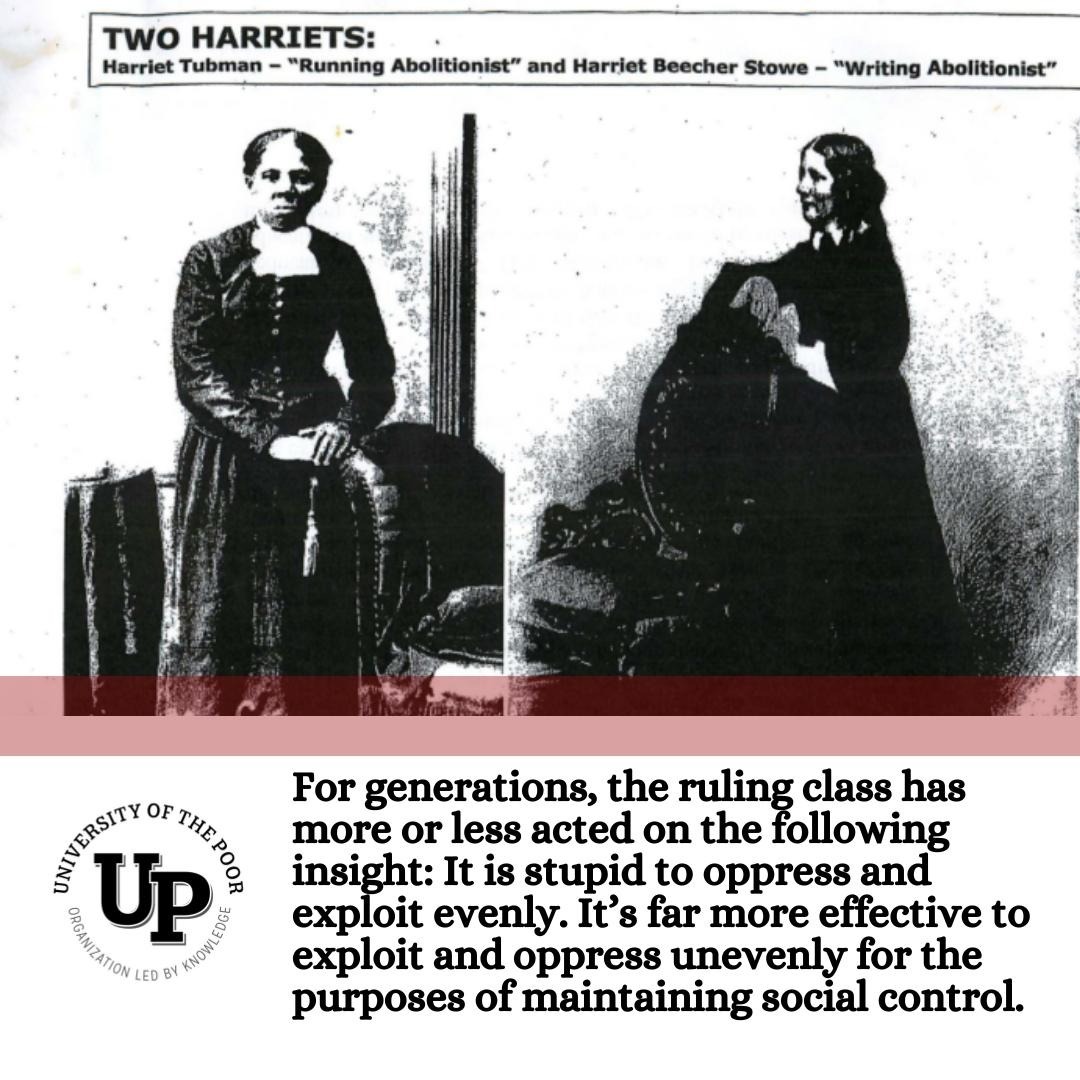Any approach to social change, organizing and leadership development has to be based on your assessment of the situation and of the problem. If you have one assessment or one diagnosis, you’re going to have a particular prescription and a particular approach to the solution. Either we’re dealing with a teddy bear or we’re dealing with a grizzly bear, and either estimate will determine your set of tactics, your organizing approach. If you think you’re dealing with a teddy bear and in reality it’s a grizzly bear coming at you, you’re going to be in trouble.
– Willie Baptist, It’s Not Enough to Be Angry
This issue of the University of the Poor Journal fuses two key elements of our approach to social change: “concrete analysis of concrete conditions” and the study of history. Both of these elements help us to assess our situation and the problems faced by the class of the dispossessed today. As we do, we reflect on our process in uniting leaders to lay the foundation for a network of revolutionaries committed to building a movement to end poverty.
Nijmie Zakkiyyah Dzurinko chronicles the massive and deepening healthcare crisis and the policy murder of Medicaid cut-offs across the U.S. which are impacting millions of people in every county, town and state. Dzurinko puts forward the Nonviolent Medicaid Army as one important strategic organizational form that can cut across lines of division to unite the working class.
The History and Political Strategy Team of the UPoor argues that mastering an understanding of the Movement to End Slavery is crucial for revolutionaries in this period. Even more than the heroic struggles of the 1930s and 1960s, which achieved concessions from the existing power structure, this article asserts that the movement to abolish slavery in the United States achieved a shift in political and economic power relations with the unseating of the Slave Power and an unprecedented redistribution of private property. This movement’s five stages demonstrate a method for examining conditions and consciousness, correlations of forces, and relationships between cadre development and mass organization.
Bruce Parry illuminates the struggle to use elections as a vehicle to build the organization of the poor in Chicago. The Illinois Union of the Homeless (ILUH) made a significant contribution to making homelessness an issue in key races across the city and used the 2023 election cycle as a platform for developing leaders and projecting the ILUH in the political arena.
Lenny Brody exhorts us to learn the lessons of the class struggles of the 1930s and ’40s so as not to repeat the mistakes of the New Deal era. Brody notes that although communists and socialists were at the forefront of powerful antieviction organizing, union drives and hunger marches during the Great Depression, party leadership tragically miscalculated the importance of political independence when they backed Roosevelt’s New Deal Coalition to the point of dissolving the Communist Party USA.
The Editorial Committee shares reflections from the powerful Moral Poverty Action Congress of the Poor People’s Campaign in June 2023.
Finally, Lenny Brody memorializes Baltimore Black Panther leader and political prisoner Eddie Conway, who spent 44 years in prison and died in February 2023. Conway gave a 12-part interview series to The Real News’s Paul Jay in 2014 shortly after his release.
As with every issue of the University of the Poor Journal, it is our goal that these contributions serve as opportunities for debate among leaders of the working class in the United States and beyond. These articles only really come alive within the context of discussion, weighing the arguments against our own prior study, experiences and assumptions, and grappling with what they might mean for our organizing orientation in the coming period.
Is it a teddy bear or a grizzly bear coming at us? Studying and extracting lessons from the victories and defeats of our class in past eras – as well as focusing our analysis on the rising section of our class today – can take us a long way in making that assessment.
Nijmie Zakkiyyah Dzurinko and Tim W. Shenk
For the University of the Poor Journal Editorial Committee



